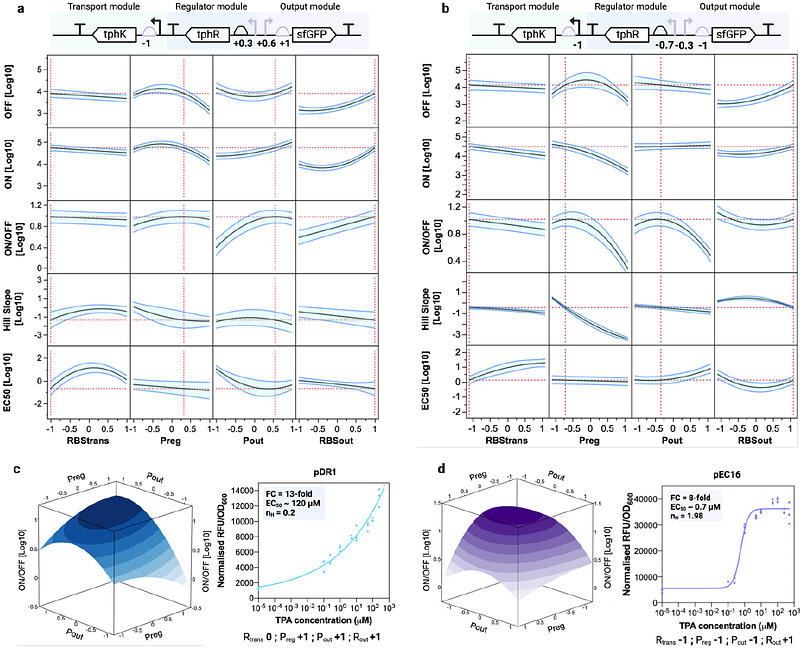Tuning the performance of a TphR-based terephthalate biosensor with a design of experiments approach

Tuning the performance of a TphR-based terephthalate biosensor with a design of experiments approach
Alvarez Gonzalez, G.; Chacon, M.; Butterfield, T.; Dixon, N.
AbstractTranscription factor-based biosensors are genetic tools that aim to predictability link the presence of a specific input stimuli to a tailored gene expression output. The performance characteristics of a biosensor fundamentally determines its potential applications. However, current methods to engineer and optimise tailored biosensor responses are highly nonintuitive, and struggle to investigate multidimensional sequence/design space efficiently. In this study we employ a design of experiments (DoE) approach to build a framework for efficiently engineering activator-based biosensors with tailored performances, and we apply the framework for the development of biosensors for the polyethylene terephthalate (PET) plastic degradation monomer terephthalate (TPA). We simultaneously engineer the core promoter and operator regions of the responsive promoter, and by employing a dual refactoring approach, we were able to explore an enhanced biosensor design space and assign their causative performance effects. The approach employed here serves as a foundational framework for engineering transcriptional biosensors and enabled development of tailored biosensors with enhanced dynamic range and diverse signal output, sensitivity, and steepness. We further demonstrate its applicability on the development of tailored biosensors for primary screening of PET hydrolases and enzyme condition screening, demonstrating the potential of statistical modelling in optimizing biosensors for tailored industrial and environmental applications.


